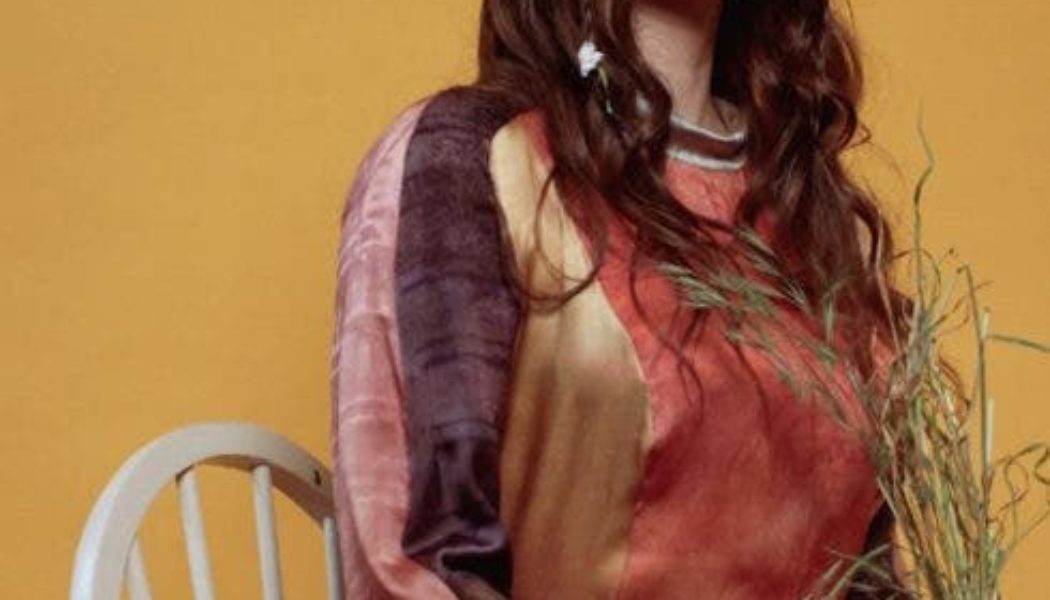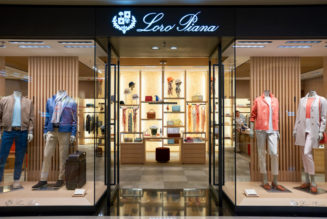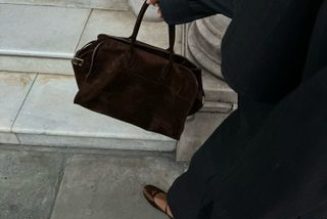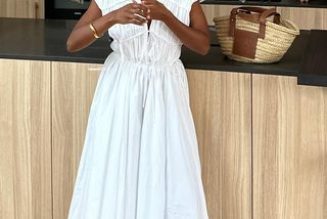A BRITISH designer hopes to revolutionise the fashion industry by using Andalucia’s olive oil waste to create luxury clothing.
Hanna Whiteman, 39, uses discarded pits and other waste products to dye luxury materials, creating garments worthy of distinguished fashion houses.
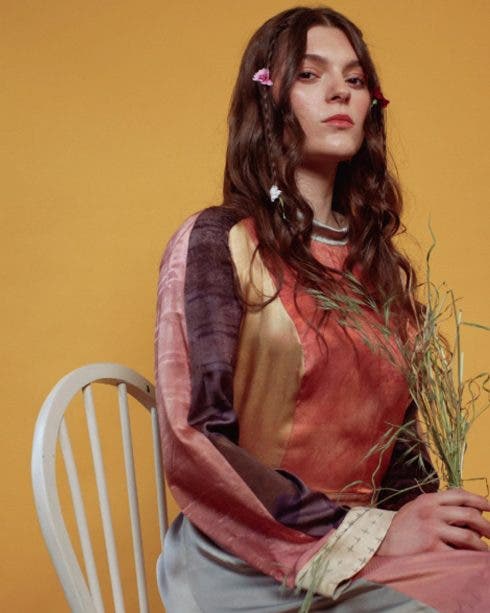
Now, she’s hoping to attract A-list designers such as Stella McCartney with the project, inspired by Whiteman’s experience living in Andalucia.
The London-based designer spent 14 years living between Granada, Cordoba and Orgiva before returning to the UK.
When studying for a BA in Textile Design in London, she returned to the Alpujarras in search of a solution to fashion’s environmental impact and the climate crisis.
In a local olive mill, she found that olive pomace, a soil residue, could be used as an alternative to harsh bleaches to remove colour from base fabrics.
After a ‘dismal’ attempt to create leather from the pomace, she accidentally spilt it on some naturally dyed cotton.
The incident revealed a natural alternative to the dye removal process, which typically uses lots of harsh chemicals.
The Central St Martins graduate also realised olive pits could be used as a natural ink for textile printing.
Not only is this eco-friendly but produces a jet black colour rare in natural inks.
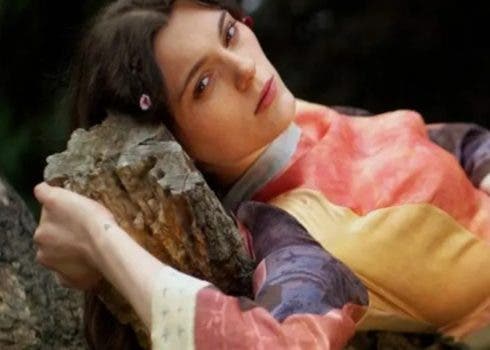
She said: “Fashion has had a negative past but there is an opportunity to turn it around.
“It’s all about vision. Where some might see waste you have to see possibilities.”
It adheres to the principles of ‘circular design’ meaning garments must be durable, reusable, repairable and recyclable.
The project doesn’t only benefit the environment but the local economy.
The region has suffered from high unemployment rates in recent years and the olive oil industry is particularly affected since red dust from the Sahara ruined last year’s crop.
Whiteman added: “I saw lots of problems but also lots of possibilities. The high unemployment rate and waste products could be solved by diversifying the income of farmers through fashion.”
Although many may think high fashion and farming have no place together, garment making has always been linked to farms, from the production of wool, to the growing of cotton and other materials.

Whiteman’s project, known as ‘ENVERO’, referring to the ripening process of olives, was also inspired by the history and aesthetics of Andalucia.
When living in the region, Whiteman learnt jewellery design in Cordoba and worked in Granada’s Alhambra, gaining inspiration and learning about Andalucia’s history of design.
Hanna said: “The south of Spain is a very aesthetic place, it’s full of patterns of geometry and nature. That definitely had an impact on my design.”
The area also has a rich history of textile production and was so well-respected that at one time, they even produced the pope’s ceremonial robes.
Once producing the best silk in Europe, Orgiva was a centre of luxury silk production and al-andaluz was well known for its natural dyes.
The shapes and styles prominent when Andalucian textile production was at its height heavily influenced Whiteman’s design, producing a long robe inspired by modest mediaeval clothing.
She continued: “I want to bring back the charm and beauty to a place that was once associated with high fashion. I want to glamourise the Alpujarra.”
As well as hoping to attract the interest of a-list designer Stella McCartney, the project has been shortlisted for the University of the Arts London Green Trail award.
Hanna hopes to return to the Alpujarras to further develop the project but in the meantime, she will be teaching students how to create fashion from waste products at Morley College, Waterloo, where she is helping develop the BA Fashion Design Programme.
She also sells her designs through her brands Studio H, which you can check out on @hacheisforhanna on Instagram or read more about her project here.
READ MORE:
